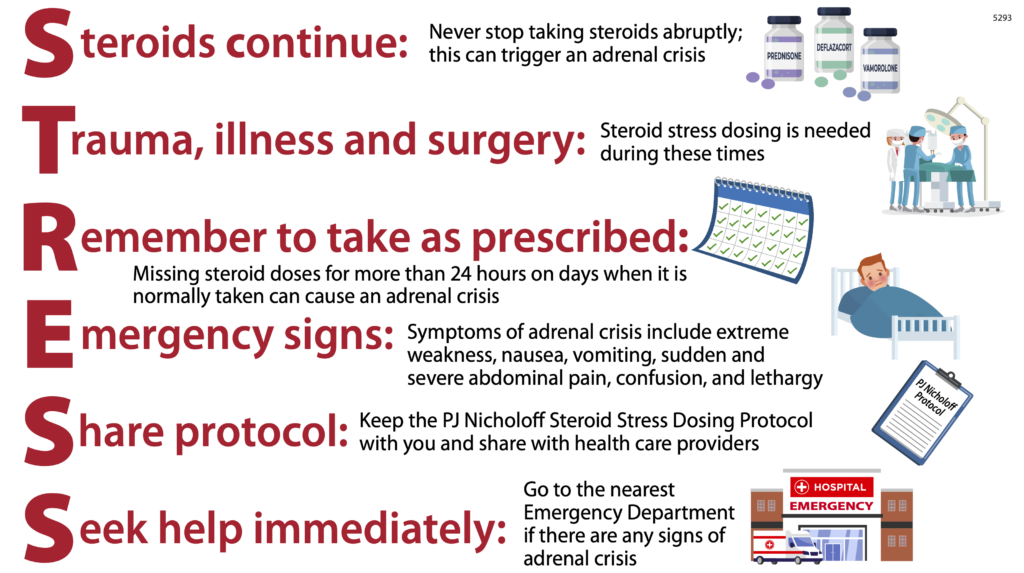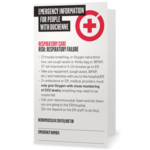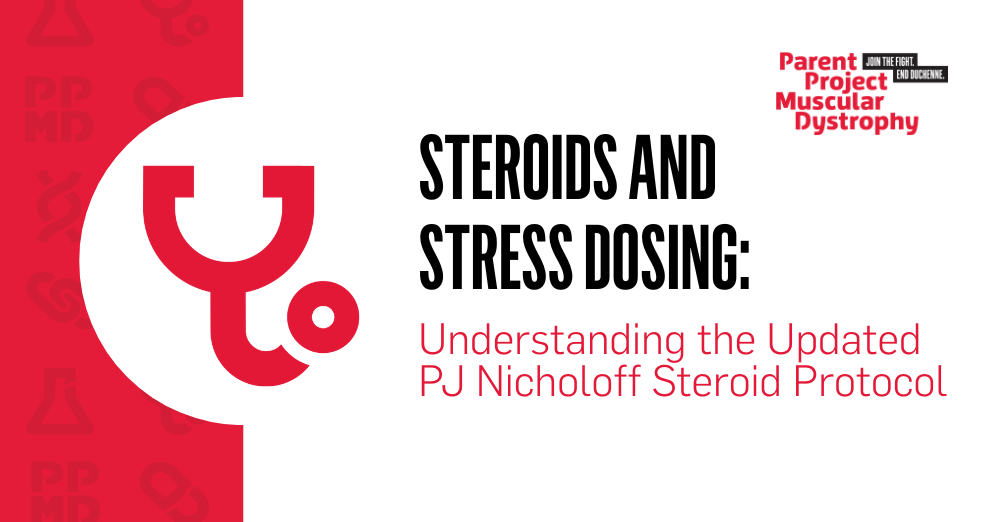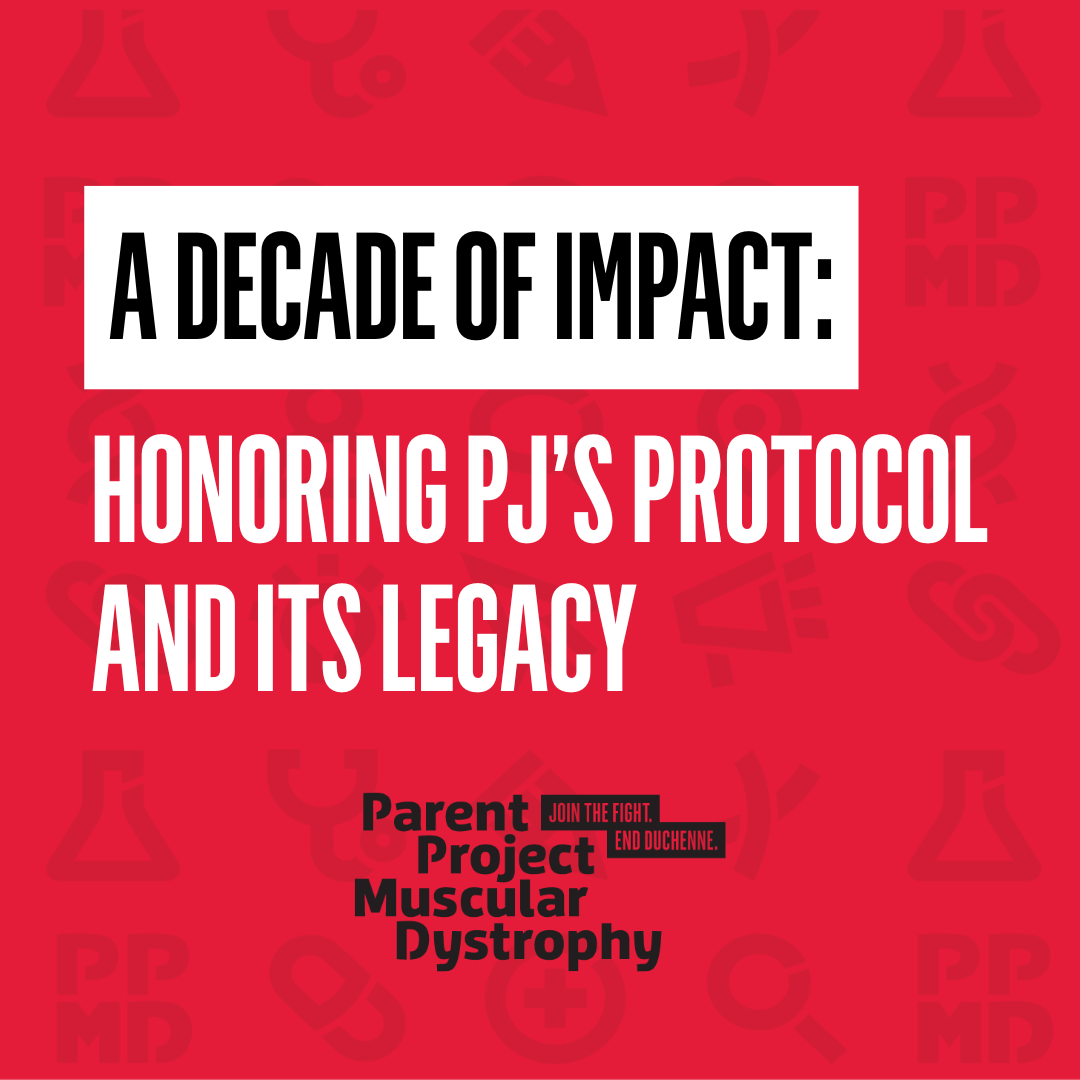
Emergency Care Considerations
If you or your child suddenly becomes sick or injured, it is extremely important that you have the following information with you when talking to the emergency staff.
Important Contact Information
If you find yourself at the hospital with a medical emergency, be sure to be involved in the plan of care. In addition to sharing your PPMD emergency card or PPMD app with clinicians involved in your care, it is also important to make sure a physician with experience in dystrophinopathy is involved in you or your child’s care in the hospital. Click here for a list of contact numbers from each of the PPMD Certified Duchenne Care Centers (CDCCs) to ensure a dystrophinopathy specialist can be involved in your or your child’s plan of care.
General Recommendations & Precautions
- Keep immunizations up to date and get the influenza vaccine annually
- People taking daily, long term steroids should avoid live vaccines when possible
- Always wear seat belts – in the car AND the wheelchair/scooter
- Learn more about vaccination recommendations for people with dystrophinopathy
Breathing problems
If you/your child is having problems with breathing (shortness of breath, difficulty breathing, etc.), remember:
- Risk: Respiratory failure.
- Only give oxygen with close monitoring of CO2 levels; breathing may need to be supported (with BiPAP, for example).
- If oxygen levels are low, assisted coughing (with cough assist machine or Ambu bag) may help.
- Take your equipment (cough assist, BiPAP, etc.) with you to the hospital/emergency room (ER); alert your neuromuscular team that you are going to the ER/hospital.
- Learn more about pulmonary (lung) care in dystrophinopathy.
Broken or suspected broken bone/fall/trauma
If you suspect that you/your child may have broken a bone or has had a fall/trauma, remember:
- If ambulatory: Ask if internal fixation/surgery, rather than casting, may be possible. Surgery may help preserve walking.
- If your child has had a fall or a leg injury, and has rapid onset shortness of breath/difficulty breathing, changes in alertness (confusion, agitation, disorientation) this is an emergency; go immediately to the ER and alert staff that symptoms could be due to Fat Embolism Syndrome (FES).
Risk of Fat Embolism Syndrome (FES) Following a Fall /Fracture /Trauma:
- Extremely rare.
- Results when fat particles enter the blood circulation, causing decreased oxygenation to the heart and/or brain.
- These usually follow long bone/pelvic fractures or trauma; very rarely these have occurred after orthopedic surgery.
- Should be considered if the child develops shortness of breath or neurological symptoms after a fall/fracture/trauma.
- Learn more about the symptoms of FES & how to care for it.
Dental procedures
If you/your child is having a dental procedure, remember:
- Dentistry generally can, and should, be performed with the minimal amount of anesthesia possible while providing the patient maximal physical and emotional comfort.
- Local anesthetics, nitrous oxide, and an oxygen “wash out” are safe for most patients with dystrophinopathy, especially patients who are ambulatory with normal pulmonary function (normal breathing).
- Patients with dystrophinopathy who have pulmonary dysfunction (abnormal breathing) should consider receiving dental care requiring general anesthesia in a hospital or surgery center staffed with an anesthesiologist, and equipped to monitor intra-operative respiratory functioning and to manage potential respiratory and cardiac emergencies.
- Learn more about dental care considerations in dystrophinopathy.
Pain
If you/your child is having severe pain, remember:
- In dystrophinopathy, there are many issues that may be related to pain.
- It is important to take information about you/your child with you, so that the emergency room staff can do a thorough evaluation, diagnose the cause of pain quickly, and help manage the pain appropriately.
Surgery
If you/your child is scheduled for surgery, or having emergency surgery, remember:
- Avoid inhaled anesthesia
- IV anesthesia is considered to be safe (with close monitoring)
- People with dystrophinopathy should NOT receive succinylcholine
- Local anesthetics & Nitrous Oxide are safe for minor dental procedures
- See a complete list of Safe and Unsafe Anesthetics
Vomiting and/or unable to take daily corticosteroids for 24 Hours
If you/your child is vomiting and/or unable to take daily corticosteroids for 24 hours, remember:
- Call your neuromuscular specialist and let them know you are going to the emergency room and why
- Go to a hospital emergency room; bring the PJ Nicholoff Steroid Protocol (download)
- Request substitute IV corticosteroid until oral medications are tolerated (6 mg of deflazacort equals 5 mg of prednisone)
- It is important to remember you cannot use Agamree (vamorolone) to stress dose
- Remind clinicians that high liver enzymes (AST/ALT) are normal for people with dystrophinopathy, and usually require no further testing
- Learn more about steroids

Keep this Information with You
In addition to bookmarking this page, there are three easy ways you can keep this information with you at all times:
DOWNLOAD OUR APP
Download the Parent Project Muscular Dystrophy App (iPhone or Android) to access this emergency care information right from your phone.
 ORDER OUR WALLET SIZE EMERGENCY INFORMATION CARD
ORDER OUR WALLET SIZE EMERGENCY INFORMATION CARD
This simple, yet extremely important card for your wallet will help you talk to doctors, nurses, and hospital administration, if your child suddenly becomes sick or injured. Available in English and Spanish. Click here to order.
 ORDER OUR LARGE EMERGENCY INFORMATION CARD FOR WHEELCHAIRS, SCOOTERS & BACKPACKS
ORDER OUR LARGE EMERGENCY INFORMATION CARD FOR WHEELCHAIRS, SCOOTERS & BACKPACKS
These new emergency cards are larger in size, weatherproof, and include a chain for easy attachment to backpacks, scooters, strollers, wheelchairs, or other mobility devices. The cards are two-sided; one side emphasizes important information for families and emergency contact information, and the other side is directed towards healthcare professionals/first responders taking care of your or your child. The cards are available with the family information in both English and Spanish. Click here to order.
ORDER OR CREATE YOUR OWN MEDICAL BINDER
During emergencies, it can be difficult to find and communicate all the necessary information to properly care for your child with Duchenne/Becker. PPMD’s “DIY Care Binder” materials house important information regarding Duchenne/Becker care to help you navigate routine care and emergencies, as well as areas you can personalize with your own care information. Click here to order or download inserts








